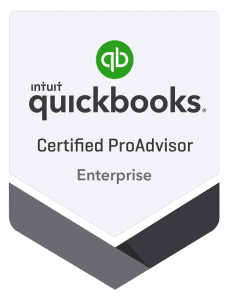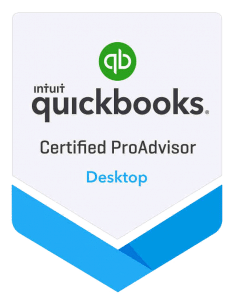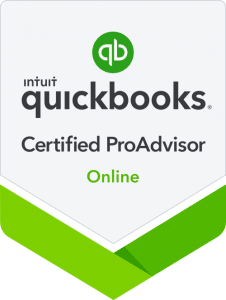Keeping up with your business finances might not be the most exciting part of running a company, but ignoring it can lead to serious problems down the road. That’s where managed bookkeeping steps in. Instead of tracking every receipt and logging each transaction yourself, you hand that work over to professionals who do it regularly. It’s like having guardrails on your financials, helping you stay steady and avoid sudden surprises.
When your records are handled correctly, everything else becomes clearer. You get to make decisions based on real numbers instead of guessing. This article explores the financial slip-ups small business owners often run into and how a managed bookkeeping approach can help keep things organized, accurate, and stress-free.
The Common Financial Errors Faced By Small Businesses
Running a small business usually means juggling a lot of moving parts. Between customers, staff, marketing, and service delivery, it’s easy for financial tasks to fall behind or get skipped altogether. Unfortunately, accounting and bookkeeping errors can sneak up quickly and cause more trouble than expected.
Here are some of the most common mistakes business owners face:
– Skipping or misplacing receipts
– Entering wrong numbers into their system
– Forgetting to log expenses or income correctly
– Mixing personal and business transactions
– Relying on outdated or incorrect reports to make decisions
Even small errors can snowball. A couple of missing receipts early in the year could lead to confusion at tax time. If revenue gets recorded without taking refunds into account, your income may look better than it really is. Or, if payments to vendors aren’t tracked properly, it could seem like you have more cash than you actually do. That kind of mistake can hurt your ability to plan ahead or pay bills on time.
Sometimes, these issues start off as simple oversights. You might assume you’ll fix it later, but “later” never comes. Then one day, your numbers don’t add up. That can cause tension with your accountant, slow down loan applications, or even trigger unwanted attention from tax agencies. Financial records don’t fix themselves, and mistakes tend to build up unless someone is actively managing them.
An example of this is a local café that ran weekly sales reports but never checked how those numbers matched up with supplier invoices and staff payroll. They assumed they were making great margins until they realized several expense payments were missing from their logs. By the time they figured it out, months had passed and their financial picture was completely off. All of it could have been avoided with managed bookkeeping.
How Managed Bookkeeping Helps Avoid These Errors
Managed bookkeeping is all about consistency, structure, and attention to detail. Instead of waiting for things to go wrong, these services put the right systems in place ahead of time. That means fewer errors, faster fixes, and more time for you to focus on growing your business.
Here’s how managed bookkeeping works to prevent common mistakes:
1. Organized processes: Professional bookkeepers follow structured workflows. They know what needs to be recorded, how often, and in what format. Nothing falls through the cracks because every part of your finances is part of a routine system.
2. Regular check-ins: Managed bookkeeping includes frequent reviews of your financial records. Instead of seeing your numbers only once a year, you or someone on your team gets updates monthly or even weekly. That allows you to step in before issues get worse.
3. Accurate reporting: Reports are cleaner and clearer when built on properly managed numbers. This helps you track profits, monitor expenses, and get a fair view of where your business stands.
4. Spotting red flags early: Consistent bookkeeping highlights unusual charges, missing payments, or dips in income. Catching errors early means you can fix the problem before it creates a chain reaction.
5. Separation of duties: When someone outside your daily operations manages your books, you’re less likely to rely on guesswork or emotions when making money decisions.
Altogether, managed bookkeeping offers steady protection against costly mix-ups. It keeps your records in good shape, allows for smarter planning, and cuts down on the back-and-forth with your accountant or tax preparer. Most importantly, it brings order to a part of your business that can get messy fast.
Benefits of Managed Bookkeeping for Small Businesses
Managed bookkeeping brings several clear advantages to small business owners. One of the biggest is improved financial accuracy and dependability. With a team keeping your records in check, your books reflect what’s really going on, so you can make decisions with confidence.
You’re not just getting reliable data. You’re also gaining the ability to take action based on that data. Whether you’re budgeting, managing cash flow, or weighing business moves, you’ll know where you stand. This can make things like purchasing decisions, hiring, or investment planning far more strategic.
Another bonus is the time you save. Instead of piecing together receipts or hunting for errors, you can focus on growing your business. Handing over your bookkeeping means less stress, fewer sleepless nights over finances, and a clearer path toward reaching your goals.
Steps to Get Started With Managed Bookkeeping
Getting started with managed bookkeeping doesn’t have to be a big leap. You just need a clear plan.
Begin by deciding which tasks you need help with. Some businesses only need support with monthly reconciliations or keeping up with sales data. Others want a full-service provider that handles payroll, invoicing, bill payments, taxes, and reporting.
Once you know what you’re looking for, take some time to find the right bookkeeping provider. Here are a few ways to pick the right one:
– Look at reviews and testimonials for providers serving businesses like yours
– Ask if they know the specific software you already use, like QuickBooks or NetSuite
– Check how they communicate and how often updates or reports are shared
Once you’ve narrowed it down, have a clear conversation. Walk them through your challenges, your current process, and what level of involvement you’re expecting. This back-and-forth early on helps avoid friction later and sets a foundation both sides can grow on.
Staying Proactive With Managed Bookkeeping
Even after you’ve handed off the work, you still have a role to play. Staying proactive ensures you get the most from your bookkeeping service.
Make it a habit to check in regularly with your bookkeeping team. These chats give you a chance to ask questions, review reports, and talk through any updates related to your finances. The more you understand your numbers, the easier it is to steer your business in the right direction.
If you’re using software to manage your books, make sure data is added on time. Whether it’s uploading receipts or confirming payment records, timely info keeps things accurate and useful.
Another smart move is to automate where you can. Tools built into most accounting software can handle invoicing, payment reminders, and document storage. These cut down on mistakes and speed up your admin work.
If you stay connected, use the tools available to you, and ask the right questions, you’ll get far more value from your managed bookkeeping.
The Right Support Leads to Better Financial Health
By choosing managed bookkeeping, small business owners gain more than just help—they gain a reliable financial system. It adds consistency, reduces stress, and gives business owners confidence in their records. You stop worrying about last-minute catch-up or surprise errors and start focusing on building stronger operations.
Cloud Bookkeeping offers skilled support, backed by experience and a client-first approach. Whether your business is new or well-established, our team can help clean up your books, strengthen your reporting, and ensure your financial data supports long-term success.
FAQs
1. What exactly is managed bookkeeping?
Managed bookkeeping is when trained professionals regularly handle your financial tracking, including income, expenses, receipts, and reports.
2. How can managed bookkeeping save my business money in the long run?
It keeps your books correct and up to date, which helps prevent costly errors and gives you a better grip on spending.
3. How often should I communicate with my managed bookkeeper?
Monthly is a good rule of thumb, but some businesses may need check-ins more often depending on their needs.
4. What qualifications should I look for in a managed bookkeeping service?
Look for experience with your type of business, skill with your accounting software like QuickBooks, and good communication habits.
5. Can managed bookkeeping help with tax preparation and compliance?
Yes, many services include tax prep and help you stay compliant with filing rules and deadlines.
To simplify your bookkeeping process and ensure your financial records are accurate and up to date, consider the benefits of bookkeeping services. Let Cloud Bookkeeping help you gain clarity and control over your business finances with their expert services.






